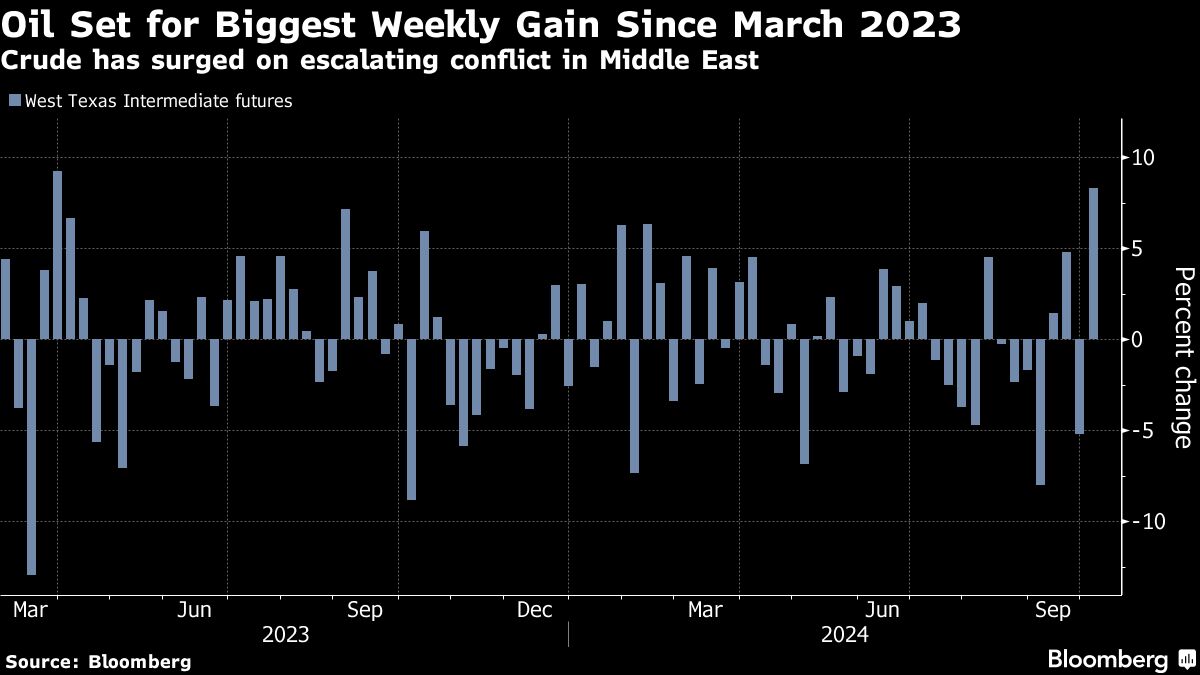
Oil pushed higher — following its biggest one-day jump in almost a year — on concerns that Israel may decide to strike Iranian crude facilities in retaliation for a missile barrage earlier this week.
West Texas Intermediate rose toward $74 a barrel, after surging more than 5% on Thursday, while Brent closed near $78. On Thursday, President Joe Biden — when asked if he would support Israel attacking Iran's crude facilities — said: “We're discussing that.” Later, a US official said the administration was still in talks with Israel, and believed that no decision had been taken yet.
Crude has soared this week as the escalation of tensions in the Middle East raised the possibility that supplies from the region, which accounts for about a third of the world's total, could be disrupted. Israel and Iran, as well as Tehran's proxies in Lebanon, Gaza and elsewhere, have been facing off for the past year, stoking concerns of an all-out conflict that could draw in the US.

OPEC member Iran — which pumps more than 3 million barrels of crude a day — fired a barrage of missiles into Israel earlier this week, after Israel stepped up its offensive against Tehran-backed Hezbollah, including sending its troops into southern Lebanon. On Thursday, the US-led Group of Seven nations called on countries in the region “to act responsibly and with restraint”.
Citigroup Inc. has estimated that a major strike by Israel on Iran's export capacity could take 1.5 million barrels of daily supply off the market. If Israel struck minor infrastructure, such as downstream assets, 300,000 to 450,000 barrels of output could be lost, it said. Analysts have also expressed concern that Tehran could raise the stakes by targeting energy infrastructure in neighboring states or supply routes, including the critical Strait of Hormuz.
Oil's jump — if sustained — may contribute to a resurgence in inflation just as many central banks, including the US Federal Reserve, have started to ease interest rates after the pace of price gains ebbed. Costlier crude would over time feed through into higher gasoline prices at the pump.
Beyond the crisis, there are signs of ample supplies. OPEC+ intends to restore some of its shuttered capacity, with increases set to start from December. Libya, meanwhile, has been restarting production, returning hundreds of thousands of barrels a day, after a political standoff in the country eased.
Essential Business Intelligence, Continuous LIVE TV, Sharp Market Insights, Practical Personal Finance Advice and Latest Stories — On NDTV Profit.





















